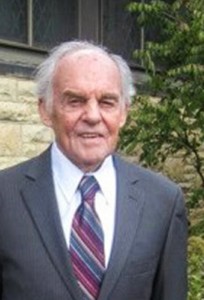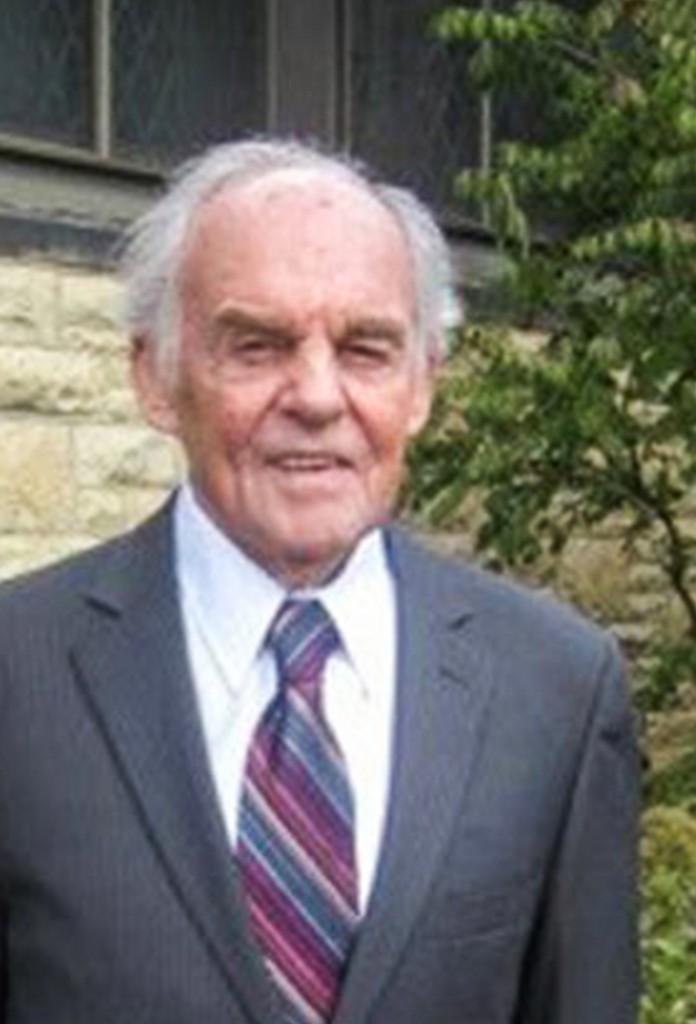Grinnell’s Anthropology department recently paid its respects to Professor Emeritus Ronald J. Kurtz, Anthropology, who passed away on Monday, April 21 in Sacramento, Calif. at the age of 87. Kurtz was the first full-time cultural anthropologist at the College and played an instrumental role in working with administration to establish Anthropology as an independent department at Grinnell in 1968.
After joining the faculty of the combined Sociology-Anthropology department in 1958, Kurtz taught at the College for 31 years before retiring in 1989. During his time at Grinnell, Kurtz was very popular with his students because of his personable nature. He had a similar effect on his colleagues, who respected his thorough, professional work, generosity and sense of humor.
Professor Emeritus Waldo Walker, Biology, developed a close relationship with Kurtz when the two worked together and spoke with the late professor just five days before Kurtz’s death.
“We spent a lot of time listening to Neil Diamond back then,” Walker reminisced. “Ron had a lot of records of Neil, so we would go to my place and listen and have a few drinks, chat and have a good time.”
Professor Emeritus Doug Caulkins, Anthropology, a former colleague of Kurtz’s during the burgeoning years of the department, recently prepared a picture presentation in honor of the late professor for students in the two Anthropology courses he currently teaches.
“I told them, ‘Here is one of the founders of the Anthropology department.’ I did this because I want people to think about the faculty who have gone before, who have worked to create the kind of school that we now appreciate … that has now resulted in a stellar Anthropology depament,” Caulkins said.
Kurtz served as the first chair of the Anthropology department, and his main contributions involved laying the groundwork for the foundations of the current department. He was particularly committed to an approach that embraced the four fields of anthropology: archaeology, linguistics, biological anthropology and cultural anthropology. He also helped shape the budding department in a way that embraced all of the aforementioned fields.

Photo contributed.
“He would have loved the department now,” Caulkins said. “Because now we’re a genuine four-fields department.”
Kurtz’s work was crucial to developing a holistic curriculum, which grew to
incorporate culture area courses covering Africa, Asia and Latin America. His interest in linguistics also influenced the introduction of a course on language and culture as well as a course on anthropological theory, which is now required for completion of the major.
Beyond the discipline of Anthropology, Kurtz committed himself to diverse niches at the College, most notably serving as Chair of the Faculty. In addition to his involvement within the administration, Kurtz was largely involved with the African Studies concentration when it existed at Grinnell, and he had spent years performing fieldwork in Liberia.
“He had a very holistic approach to Anthropology. He really saw it as a study of all of the contexts that impinged upon a set of people, events and so on,” Caulkins said. “He was branching out to the edges of Anthropology.”
Center for Prairie Studies Director Jon Andelson ’70, Anthropology, who considers the interdisciplinary contributions a capstone of Kurtz’s legacy, pointed to the fact that faculty in the department live out Kurtz’s philosophy by teaching courses in Statistics, Global Development Studies and American Studies.
“He was very outward-thinking … in being an anthropologist he wanted to reach out beyond the department and be part of the life of the College,” Andelson said.
Andelson was an undergraduate at Grinnell when Kurtz was on faculty, and Andelson took two Anthropology courses taught by the late professor. When Andelson returned to Grinnell years later as a professor, he recalled that Kurtz insisted that the two shift to a first-name basis, and Kurtz became a source of guidance to Andelson in his beginning years as a faculty member.
In later years, Kurtz and Andelson jointly taught an Anthropology course and collaborated professionally by preparing an article for publication focused on the effects of tourism on traditional communities. Having known Kurtz both as a student and as a colleague, Andelson holds a memory of Kurtz as a gentle, genial mentor and role model.
“He was an extremely warm person–very supportive of students, which I benefited from. In terms of my own personal interactions with him, we just had the best conversations about anthropology … and about life—as good as I’ve had with anybody in my life,” Andelson said.
After moving to emeritus status in 1996, Kurtz and his wife Marilyn, a former Director of Career Services at the College, moved to Sacramento where he continued to pursue his passion for anthropology as an honorary member of the Anthropology department at the University of California, Davis.
Relatives of Kurtz have stated that no memorial services will be planned. However, Grinnell will remember the late professor as a beloved anthropologist whose life touched those around him with a sense of humanity, an impression preserved for future generations to remember.





























































